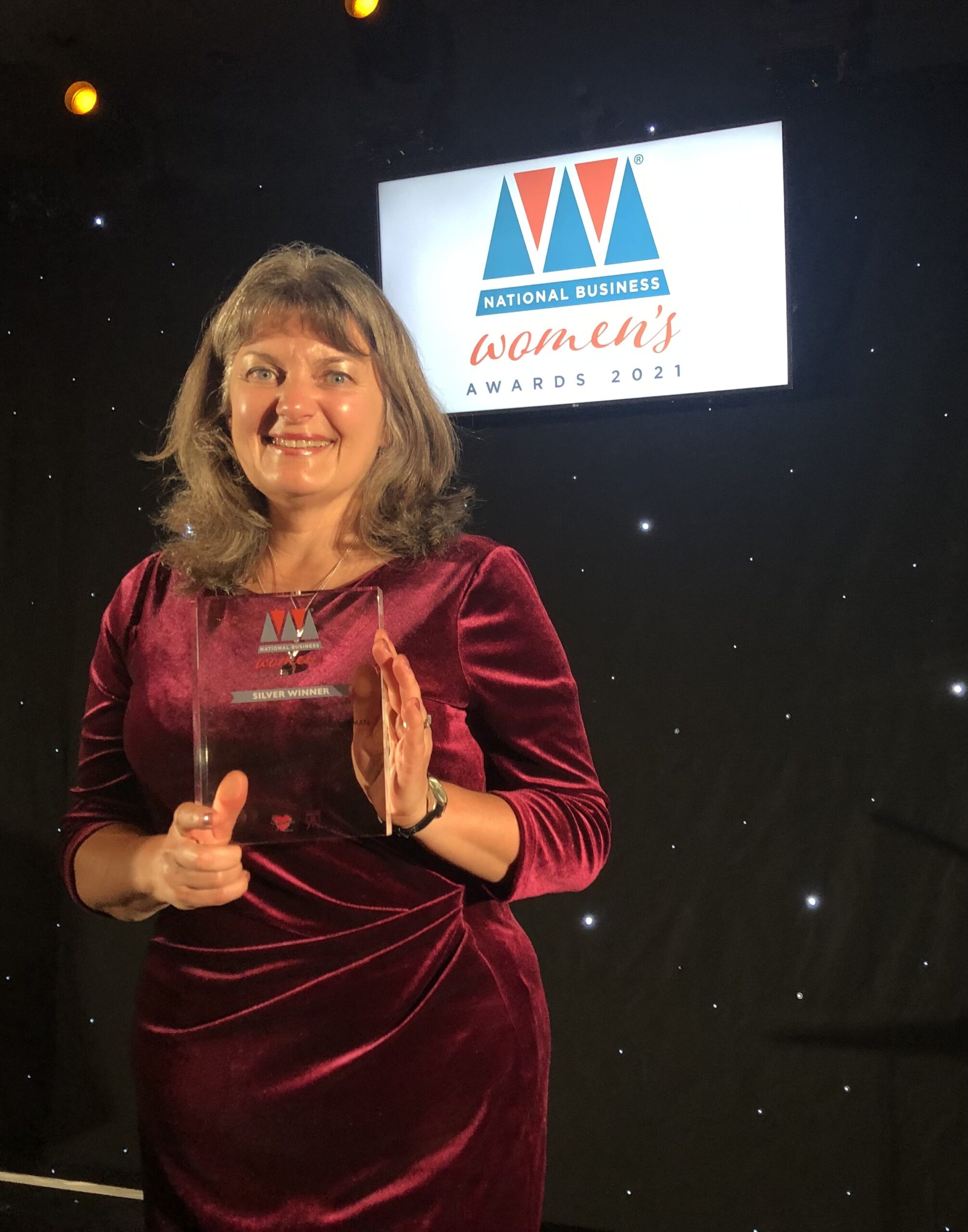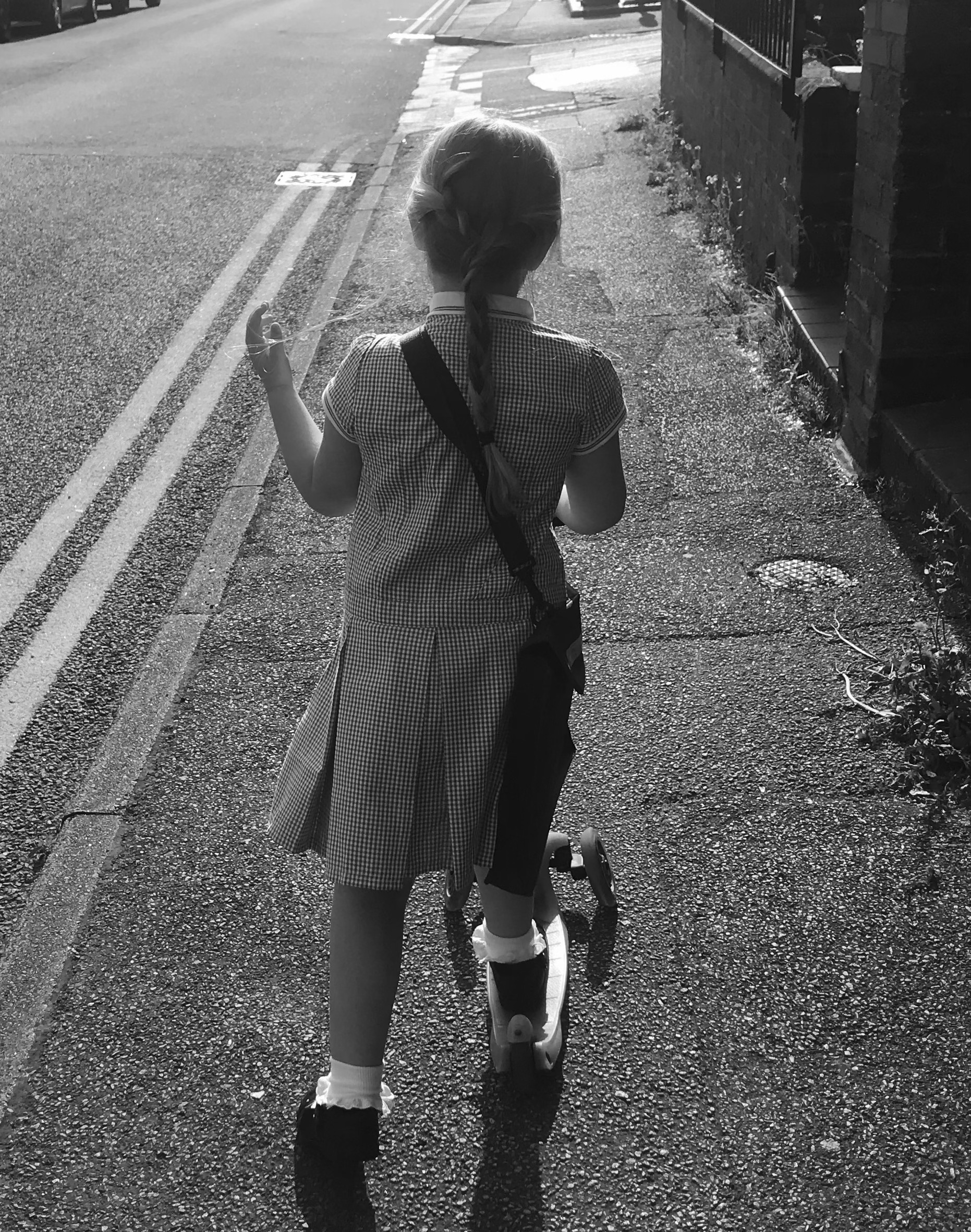
by Karen Atkinson | Nov 26, 2021 | All Blog Posts
Wining the silver award in the Southern England Business Woman of the Year category at the National Business Woman’s Awards is recognition for all the work that we have been doing at MindfulnessUK. This award is for the whole team and everyone that supports us.
MindfulnessUK started when I decided to leave the NHS as I really wanted to set up a centre for mindfulness and yoga. With encouragement and support I found a property in Taunton. When I viewed it, I could feel the positive energy in the property as it had been home to several charities since the 1970’s so there was something really special about it and I knew it was the right place.
This all happened during a recession, but I was determined the carry on, take my business plan and bring it all to life.
It was a remarkably busy for the first 3 years, building the organisation, letting people know what we were doing, offering different therapies with a variety of therapists, and building the reputation of the business.
Then in 2013, I was diagnosed with cancer. This was a really pivotal time for me, a cross-roads really, and after which I came back to work having discovered on a deep level the value of self-compassion.
I knew about self-compassion before, but it then became so important to me because of the compassion I was shown by other people. I knew that I wanted to move forward and focus the MindfulnessUK offer on mindfulness and compassion, and this is when I wrote the Integrating Mindfulness and Compassion (IMC) Qualification.
We have worked with 1000’s of students over the past 10 years, creating a unique teacher training organisation, educating, and empowering students and showing how mindfulness can support mental health and help people to thrive in their personal and professional lives.
The best thing about being the Senior Partner at MindfulnessUK, is that every day I work with a great team who share my vision; building a mindfulness community of practitioners and qualified teachers, sharing the transformational potential of mindfulness and compassion with others.
I cannot imagine my life without a mindfulness practice. It empowers me to make choices on a moment-by-moment basis. It helps me to keep everything in perspective and to be more compassionate to myself and others, always.
The Covid-19 pandemic has been a stressful and extraordinary time for the team and the business. In the beginning, everyone cancelled everything, and it looked like that was the end of the road for us, almost overnight. But, instead of giving up, we realised how people would need mindfulness and compassion even more during and after the distress and grief caused by the impacts of the virus.
Therefore, we rolled up our sleeves and took all our courses and training online, as well as developing e-courses for CPD and offering free classes in meditation, movement, and compassion. Our free classes had a donation option, and all proceeds went to the NHS.
We have been able to support thousands of people during this time, both directly and also through training others to teach mindfulness and compassion to their colleagues in the NHS, teachers, fire and police staff, carers and many more besides.
We’re incredibly proud of what we have achieved in 2020, being in a position to utilise our skills for the benefit of the mental health of those not only in the UK but internationally. Specialising in teaching people suffering with pain, anxiety, and trauma I use my expertise to train others to deliver mindfulness and compassion in a trauma-informed way.
I am so passionate about what I do, and all of our teaching and training has my book, Compassionate Mindful Inquiry In Therapeutic Practice. A Practical Guide for Mindfulness Teachers, Yoga Teachers and Allied Health Professionals, and iceberg model at its core.
I am incredibly lucky with all the support that I have, and I could not have created MindfulnessUK, and won this award, without the support of my wonderful team. I am immensely proud of what we have achieved.

by Kate Elliott | Oct 21, 2021 | All Blog Posts
It’s National Adoption Week, and a call to arms to those who could become parents to a child in need, but also to the government to ensure the support for these children is lifelong.
Why do these children need lifelong support?
As an adopted parent, you so often hear comments such as “isn’t she lucky” or “well she won’t remember what happened to her when she was a baby” or “she looks so normal”, which in some ways are true, yes she’s lucky to have the care now that every child deserves, yes she won’t remember what happened to her, and yes she does look ‘normal’, however the thing to remember is that once a child is adopted the trauma doesn’t just leave the body when the new front door shuts.
The first months of a baby’s life help them to learn their role in the world, and the brain develops pathways that are the foundations of how they view the world. A child who experiences love, care and attention learns that when they need help their primary caregiver responds to keep them safe. A child who doesn’t experience love and care learns how to survive in a world that doesn’t care for them. They learn to cry and scream if that helps get them attention (even if it’s not kind attention) or or to be quiet if no-one ever comes, and so the pathways form, and these don’t change as soon as they step across the threshold of their forever home.
Imagine this, one day you are with your family, it’s all you know and you have learnt to be safe there, and then the next day a stranger comes and takes you away and you find yourself in a new home with new adults. It’s a scary thought! This is the reality of an adopted child, from one day to the next they lose everything they know.
What happens to their brain?
It goes into survival mode; the stress response is activated and pathways built that remind the child to be hyper-vigilant and ready for change to happen again. It took my daughter 12 months to have a cuddle at bedtime!
They often say adopted children have 3 ages – their experiential age (old beyond their years, having experienced things we can never understand), their chronological age (the age they are) and their developmental age (often younger than their years due to the gaps in their development). This is why they need lifelong support! In some ways they are always playing catch up developmentally, but also need to be encouraged to be the child that they are, to be free to play and explore.
All of the above doesn’t make for a relaxed nervous system or a calm brain, in fact it makes for a body flooded with cortisol, a highly active amygdala and deeply rooted survival behaviours. Why should we expect them to trust adults, when adults haven’t kept them safe?
Where does mindfulness and compassion come into this story?
As an adopter, it is very easy to fall into compassion fatigue, caring for a child who has experienced early childhood trauma often feels like a one-way street, it’s relentless and you don’t often get much back. For me mindfulness and compassion have helped me, intrinsically, to be aware of the mother that I am (not the mother that I thought I would be), to accept myself as the mum I am (not the perfect parent but I am good enough) and I have enough tools in my self-compassion toolkit to look after myself and be kind to myself when I need to be.
And mindfulness has helped me to support my daughter to explore and understand her feelings, to teach her tools to regulate herself, and also to have the tools for us to connect with each other, even when times are tough. I often use sound to help regulate mine and her nervous systems.
It took 12 months for her to cuddle me at bedtime, and 3 years for her to start to be secure in the knowledge that I am not leaving her. The milestones take a long time to come around, but they are big when they do, and I am thankful for the attitude of patience which helps me to keep going.
Adopted children are warriors. They deserve all the support, kindness and understanding that they can get.
If you are a parent-carer and need some support, then our Compassionate Mindful Resilience course that I teach could be just right for you, visit MindfulnessUK for more information.


